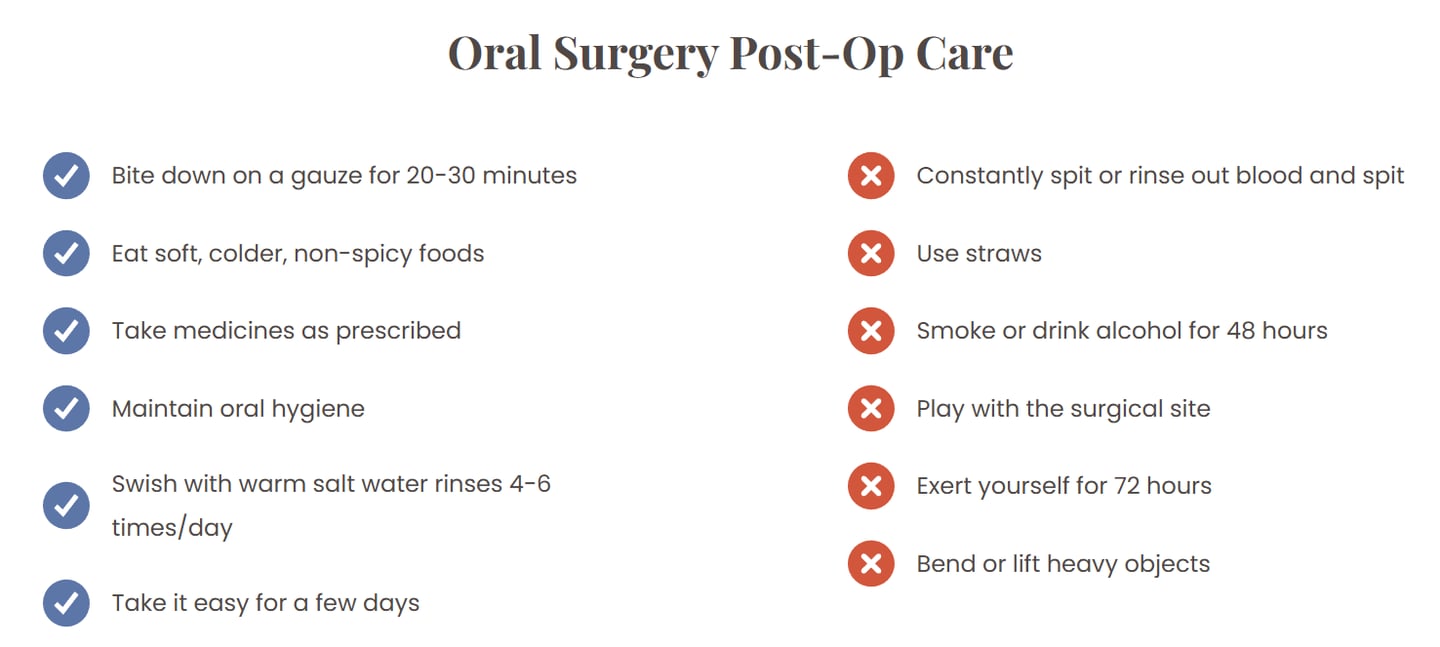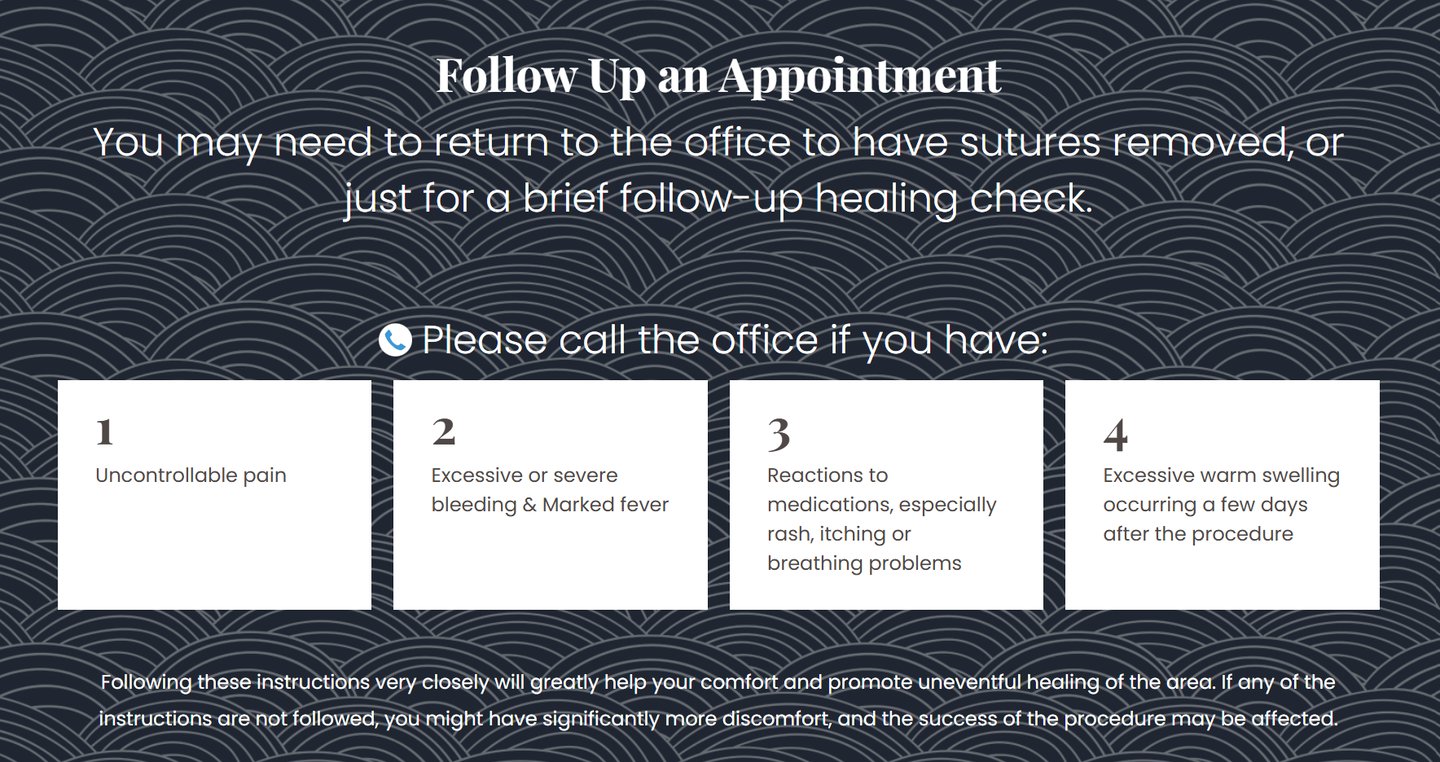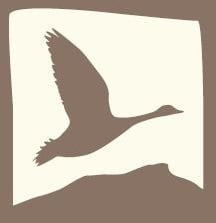

General Oral Surgery Post-op Instructions
Tooth Extraction, Implant Placement, Grafting
DO NOT DISTURB THE AREA:
For the next few days, and especially the first 24-72 hours, it is very important to allow your body to form a good clot and start the natural healing process. Swishing, sucking through a straw, and smoking can all dislodge the clot. Keep anything sharp from entering the wound (crunchy food, toothpicks, eating utensils). Be sure to chew on the opposite side for 24 hours.
Bleeding:
When you leave the office, you might be biting on a gauze pad to control bleeding. Keep slight pressure on this gauze for at least 30 minutes. Don't change it during this time; it needs to remain undisturbed while a clot forms in the extraction socket. After 30 minutes you may remove it. You may bite on another gauze or a tea bag for another 30 minutes if you feel it is still bleeding; there are chemicals in tea that help form a blood clot. Small amounts of blood in the saliva can make your saliva appear quite red, so please swallow and avoid spitting as much as possible.
Smoking:
Smoking should be stopped following surgery. The healing and success of the surgery will be substantially reduced by the cigarette smoke chemicals in your body. Also, the suction created when inhaling cigarettes can dislodge the clot. Smokers are at greater risk of developing a painful dry socket. You should try to wait 48-72 hours after your surgery to smoke again, if necessary.
Pain:
Some discomfort is normal after surgery. To minimize pain, take Tylenol, Nuprin, Advil or similar non-aspirin pain relievers as directed. Take it before the anesthesia wears off. If prescription pain medication is prescribed, take it as instructed on the label. Don't exceed the dose on the label. Taking with food or milk will help reduce the chances of an upset stomach. Avoid driving or operating heavy machinery when taking prescription pain medications. Do not drink alcohol while taking prescription pain medications.
Nausea:
This is most often caused by taking pain medications on an empty stomach. Reduce nausea by preceding each pain pill with soft food, and taking the pill with a large glass of water.
Swelling:
Applying ice or a frozen bag of peas/corn to the face over the operated area will minimize swelling. Apply for 15 minutes, then remove for 15 minutes. Continue doing this on the first day.
Numbness:
The local anesthetic will cause you to be numb for several hours after you leave the office. Be very careful not to bite, chew, pinch or scratch the numb area. Sometimes the extraction causes residual numbness or tingling for six weeks or longer.
Brushing:
Do not brush your teeth in the affected area for the first 5 days after surgery. After this period, you can use an extra soft toothbrush to clean the area as long as it doesn't cause bleeding. Otherwise, use a prescribed rinse until your follow-up appointment. Please continue brushing the rest of your teeth.
Activity:
After leaving the office, rest and avoid strenuous activities for the remainder of the day. Keeping blood pressure lower will reduce bleeding and aid healing. Avoid heavy lifting and bending over.
Antibiotics:
If you were given an antibiotic prescription, take all of them as directed until they are gone. Women: some antibiotics can reduce the effectiveness of birth control pills. Use alternative birth control methods for two months.
Sinus:
If your sinus was involved in the procedure, you should avoid blowing your nose or playing a wind musical instrument for one week. Use of decongestant medications might be recommended.




